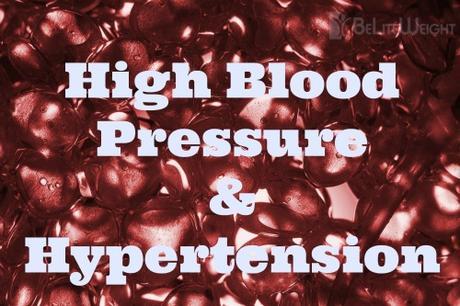
Hypertension refers to a condition of body when the force exerted by the blood against the walls of the blood vessels stands increased or elevated. This force largely depends on the quantity of blood pumped by the heart into the blood vessels (cardiac output) and the resistance of the blood vessels to handle this cardiac output. Basically. when elevated blood pressure occurs it means that the pressure against the blood vessels is raised signaling certain heart, brain, and kidney impairments which often ultimately lead to premature death.
High Blood Pressure is a very dangerous illness with far reaching consequences. Hypertension is the most prevalent cause of stroke and kidney failure and is always accompanied by obesity, diabetes, kidney disease and other co-existing problems. However, hypertension is usually asymptomatic, meaning it occurs without active signs of the illness and does its damage through its comorbidities. A brief list of these underlying illnesses that obesity and hypertension are associated with include:
· Type 2 Diabetes
· Coronary Heart Disease
· Hyperlipidaemia
· Pulmonary dysfunction
· Ischemic stroke
· Osteoarthritis
· Gallbladder Disease
· Non-Alcoholic Steatohepatitis
The most medically supported long-term resolution to hypertension is reduction in weight and weight management. The weight loss offered by bariatric surgical options and the corresponding success reducing hypertensions comorbidities are both unmatched.. It has been documented that patients who underwent RYGB or other gastric surgery lose 61.6 and 47.5% of their excess body weight respectively. Research also shows that patients who underwent gastric banding, gastric bypass, gastroplasty, biliopancreatic diversion, or the duodenal switch reported major improvements in hypertension as their weight loss continued.
Hypertension's dangerous association with obesity and other major health concerns including stroke and heart failure classify the illness under the most serious category of diseases. In light of recent medical data, one can safely assume that bariatric surgery offers the highest rate of improvement, and often complete resolution, of obesity's comorbidities including high blood pressure and hypertension.
If you would like to hear more about how the Gastric Sleeve and can potentially help your hypertension click here and inquire today!
Continue reading for more information on Hypertension
Primary hypertension, also called essential hypertension, is a condition when the causes for high blood pressure are indeterminable. Primary hypertension gradually develops over the years and is affected by general factors such as size, family lineage, and pregnancy. Secondary hypertension develops when high blood pressure is the direct result of some other problem or condition in the body such as kidney disease, diabetes, Cushing's syndrome, hyperplasia, hyperthyroidism, or something else.
Measuring Hypertension
Blood pressure is usually expressed as two measurements: systolic pressure that is the pressure of the left ventricle of the heart while contracting or pumping the blood and the diastolic pressure that is the force or pressure of the left ventricle when it is relaxed. The normal blood pressure is measured when body is at rest. In general your systolic number should be more than 120 but less than 140 and your diastolic measure should be over 80 but less than 90. When the blood pressure at rest is higher than this, the condition is termed as high blood pressure or hypertension.
A list of recommended treatments for hypertension include:
· Lifestyle Changes
· Salt, Carb, and Fat Diet Restriction
· Moderate Alcohol Consumption
· Reduction of Weight
· Regular Physical Activity
· Prescribed Medication
· Bariatric Surgery
http://www.hellenicjcardiol.com/archive/full_text/2013/3/2013_3_212.pdf
http://www.sciencedaily.com/releases/2006/03/060320223638.htm
http://bariatrics.ucla.edu/body.cfm?id=115
http://circ.ahajournals.org/content/123/15/1683.full
http://www.ncbi.nlm.nih.gov/pubmed/24662112
http://www.soard.org/article/S1550-7289(13)00384-5/fulltext
http://www.ncbi.nlm.nih.gov/pmc/articles/PMC1514677/
http://link.springer.com/article/10.1016/S1091-255X(02)00125-7
http://press.endocrine.org/doi/full/10.1210/jc.2006-0557
http://jama.jamanetwork.com/article.aspx?articleid=199587
http://jama.jamanetwork.com/article.aspx?articleid=195591&resultclick=1
http://www.medscape.com/viewarticle/855635_4
http://www.webmd.com/hypertension-high-blood-pressure/
http://www.everydayhealth.com/high-blood-pressure/
http://www.ncbi.nlm.nih.gov/pubmedhealth/PMH0041082/#conssmbp.s3
http://www.mayoclinic.org/diseases-conditions/high-blood-pressure/basics/causes/con-20019580
http://www.medicalnewstoday.com/articles/150109.php?page=3

